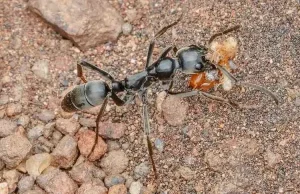The secret night life of South Africa’s city-dwelling bats
When the sun dips between the concrete buildings and the city lights flicker on (unless there is loadshedding of course), a hidden world awakens in South Africa’s urban jungles. Meet the city’s secret night dweller – urban bats – and its secret night life in South Africa.
Often misunderstood and unfairly treated, these nocturnal pest controllers play a crucial role in maintaining the delicate balance of our urban ecosystems.
Silent (?!) Guardians of the Night
Every night, these flying mammals feast on thousands of insects (mosquitoes, flies, moths, you name it…). A single bat can devour up to 1000 insects in an hour… so imagine how many insects it feeds on in the dark hours of 19h00 – 04h00… just short of 10 000! Imagine if we didn’t have these guardians of the night to keep our insect populations down.
Urban Adaptation
South Africa’s urban bats have had to adapt remarkably quickly to urban environments, and they have done well. They find shelter in buildings (we will talk about this later), under bridges, and in parks, where they rest during the day. As nigh falls, they take to the skies and navigate the urban night life with unparalleled precision using echolocation to hunt their little prey.
Bats and Pest Control: a symbiotic relationship
For pest control companies like ours, urban bats are invaluable allies. Their natural pest control services complement our efforts to keep urban areas free from harmful insects. It’s essential to recognize and protect these nocturnal creatures rather than harm them. Urban bats are a critical part of the ecosystem, and their decline would lead to an increase in insect pests, which could drive up the use of chemical pesticides to control them.
Protecting our Night-time Allies
As urban dwellers, we can take steps to protect these fascinating creatures:
- Preserve roosting sites (don’t disturb bat roosts unless they are in your home, and you want to rehome them outside)
- Create bat-friendly spaces (install bat houses to provide safe roosting sites – which is part of the rehoming process anyway)
- Reduce pesticide use (minimise your use of pesticides, or choose pest control companies who do)
- Educate and advocate (spread the word about the importance of bats and the need to protect them)
Later this month our newsletter will be going out detailing how to remove bats from your home safely. Please go to the top of our website and subscribe if you are interested





